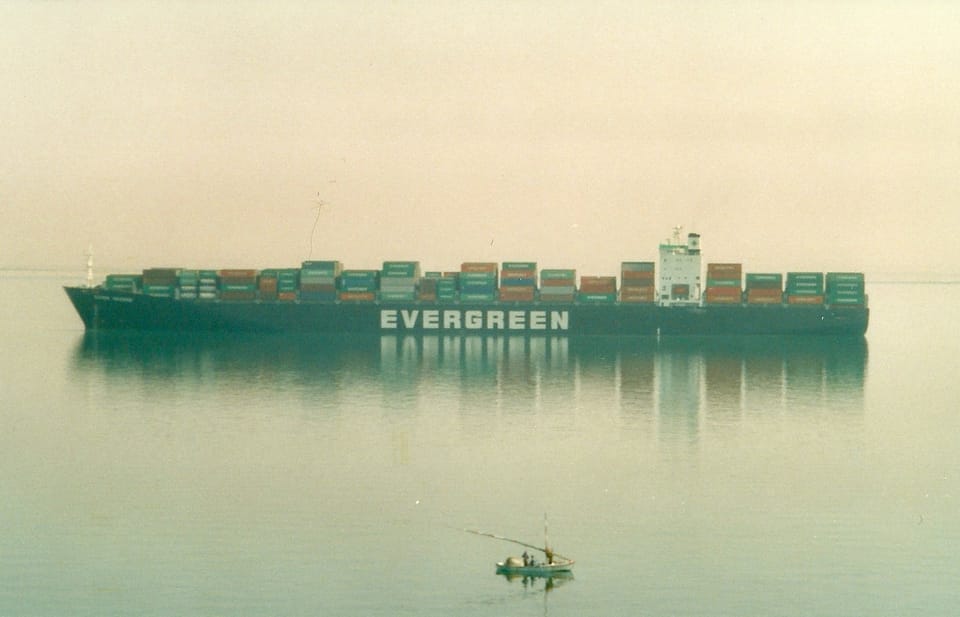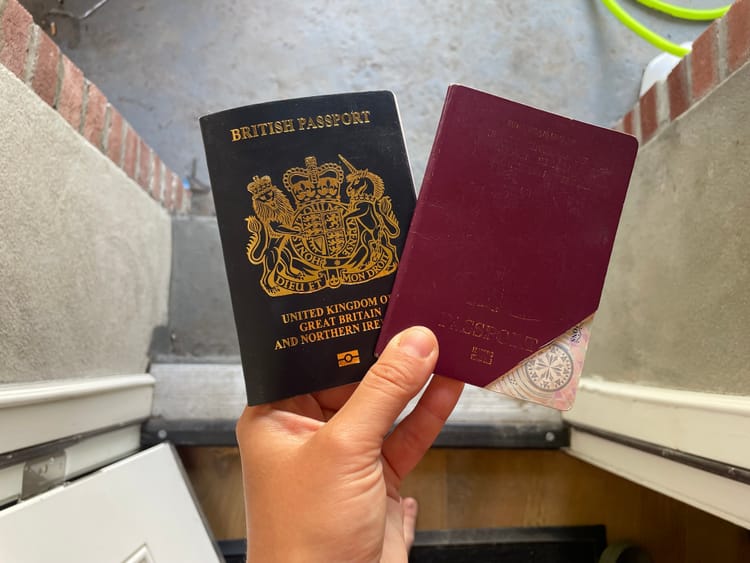FFO or SBM? A Shipping Primer

This is an explainer in the form of a hypothetical Q&A, not an interview with a person
What just physically happened in Baltimore?
A large container ship provided a massive lateral impact on the support columns for the central part of a very long bridge. Those support columns or posts are not designed to take massive lateral hits. They have a certain particular design strength because they absorb the constant pressure of the water coming and going and wind, but, generally speaking, their real strength is in the vertical plane.
What technically just happened?
The striking of a vessel against a fixed object, in an event called an allision, from Latin allisio, from allido (“to strike or dash against”). In the insurance trade such disasters are called FFOs. An FFO is a crash involving a ship and a fixed and/or floating object. In other words, it didn’t involve another ship.
Why did the bridge fall down?
Ships are now much, much bigger than they were when the bridge was constructed, in the 1970s, to an extent arguably unforeseeable to its designers.
What makes the injuries and deaths caused by this disaster a crime in the United States?
Product safety law.
Is this the pilot’s responsibility?
It's the master's. Most ports have compulsory pilotage areas, which demand you have a pilot on board, because navigating such enormous ships through them is very tricky. But the master of the ship remains responsible.
What kind of malfunction in the ship could cause an event like this?
These huge ships obviously should not be going too fast. But if a ship is going too slow, you can’t steer her. If, say, an engine fails, and she slows down, you've got a mass of several thousand tons just careening around out of control. This ship is at least 300 yards long. It’s like the Empire State Building on its side.
Are all container ships this big now?
Yes. The Suez Canal has been widened many times.
What other kind of FFOs happen?
Hitting the pier, hitting an artificial jetty, coming in too fast to berth alongside other ships.
I don’t get the “floating” part of FFO, because a ship floats.
Many ships, particularly in the oil business, tie up at Single Buoy Moorings (SBMs) that are effectively floating structures to which you connect your pipes and get oil pumped straight into the tanker.
What are the glaring unasked questions?
Why didn’t the ship have one or two or three tugs to help her get out of this busy port and into the deep sea waters? Tugs make these passages much safer . . . and much more expensive.
What happens to a big ship after she crashes?
The ship is an asset, like a house. When she's gone, so is the asset you can grab to get security for claims that will follow. If you don’t have a strict liability regime, the ship can just slip away and defraud the claimants. If she’s badly damaged, she'll have to go either back into Baltimore or to a friendly port somewhere to have all her cargo taken off, then off to a repair yard to be fixed.
But it's not like a dog, where once she bites someone, you have to put her down.
No. A ship can be repaired and continue to sail around. The world economy is expanding and there's a shortage of ships. But if she’s so damaged that it’ll cost more to fix than it would to dismantle her, they’ll write her off.
Is shipping disintegrating?
Ships have always caused damage to other ships or to port installations or bridges. Standards are probably higher now than they've ever been. But the big difference is that the ships are so huge that the consequences of making a mistake are that much more serious than they used to be. Shipping’s record on emissions is also bad, which has made the industry more visible.
Why’s it so bad?
Shipping is lightly regulated because it is unbelievably efficient and a key element to the spread of globalization. A ship can transport goods from East Asia so cheaply that it becomes an insignificant part of the landed cost in the United States. Shipping has been going on in the background, augmenting savings for all consumers everywhere, via dramatic reductions in the cost of the carriage of goods. The scale of the business influences the scale of the ships. The system is literally efficient, but it’s the scale that’s made it so cost-efficient.
If everybody needs ships, why would shipping ever reform at all?
Yes. And when you consider the scale on which it operates, the damage that a ship could do is so immense that it’s remarkable how few catastrophes occur. But they happen: Every time the ship goes through the locks of the Panama Canal there's only about 18 inches of space on both sides between the wall and the side of the ship.
Shipping has a reputation for being dodgy. The ownership of things is not clear, nobody sees what goes on, and yet it is so important and so crucial. If I owned a fabulous canal I would be very tempted to say, well, this is my 18 inches.
Shipping is a lightly regulated business—most of the time. Ships can do whatever they want for the vast majority of their working lives, but every time they go out of a big port, they're subject to massive regulation.
Is that to make up for the fact that nobody can control what happens at sea?
It’s for safety regulations.
Same thing.
If you’re interested in chaos, observe that in Russia, America is trying to impose its will on people trading with Russia by making it typically impossible to get insurance if they carry Russian oil. They can do this because the insurance market operates in US Dollars.
That sounds a bit like regular regulation. What’s Maersk’s role in this? Do they have a sinister monopoly?
No. There are six or seven big lines that control 80 percent of the deep sea cargo. It’s not an oligarchy, exactly, but world trade is dominated by a handful of these companies, of which Maersk is only the second-largest.
Where there's a lot of concentration of capital and pressure to skimp on costs, what suffers?
A massive ship has got a crew of . . . ten, maybe? In the 1950s a ship of this size, if any existed, would have a crew of 30 or 40. And with insurance, Maersk is in a position simply to write a check.
So penny pinching in a highly efficient industry with small margins and massive corporations can have a devastating effect on public safety. That doesn’t sound like it’s on the Port of Baltimore.
But why didn’t they make tugs compulsory? The port regulations are one place blame can fall, along with the ship and the maintenance and the crew and the operation and the pilots and so on. You could make any political narrative out of it.




Comments ()